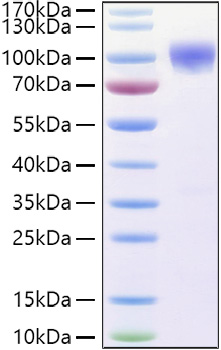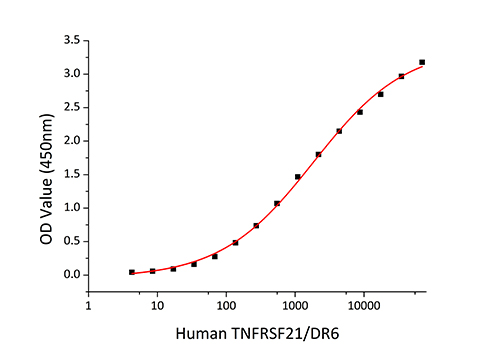Tumor necrosis factor receptor superfamily member 21 (TNFRSF21) is also known as death receptor 6 (DR6), which is a member of the TNF-receptor superfamily.This type I transmembrane receptor possesses four extracellular cysteine-rich motifs and a cytoplasmic death domain. DR6 is an extensively posttranslationally modified transmembrane protein and that N- and O-glycosylations of amino acids in its extracellular part. DR6 interacts with the adaptor protein TRADD and mediates signal transduction through its death domain, and expression of DR6 in mammalian cells induces activation of both NF-kappaB and JNK and cell apoptosis. DR6 knockout mice have enhanced CD4+ T cell proliferation and Th2 cytokine production, suggested that DR6 serves as an important regulatory molecule in T-helper cell activation, and is involved in inflammation and immune regulation. DR6 is expressed ubiquitously with high expression in lymphoid organs, heart, brain and pancreas. Some tumor cells overexpress DR6, typically in conjunction with elevated anti-apoptosis molecules. DR6 may also be involved in tumor cell survival and immune evasion, which is subject to future investigations.








